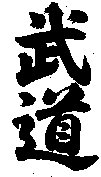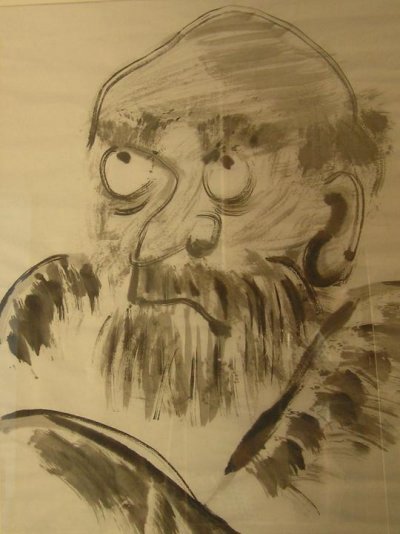Why Budo?
Why study Budo?
If the endstate of studying budo is to become a happy person that is "at one with the universe" so-to-speak, then why on earth would I study a martial art whose primary method of training is to promote the acts of killing and maiming.
Why not Yoga?
Can't you accomplish the same mindstate and endstate through studying yoga?
I think you can!
Yoga does a wonderful job at developing and aligning the mind, body, and soul. It builds and heals you and helps you help yourself. Through conditioning your mind and body, you build a strong and sound spirit. In the end you can then reach out to others and show them how to be happy and peaceful.
If yoga is so wonderful, then why do we need budo?
In a perfect world, we could all study yoga and not have to be concerned with the warrior arts. We would have the time and space in order to learn about ourselves. What a wonderful world that would be!
However, what happens when we are attacked and we are overwhelmed by the enemy? How do we regain the time, space, and distance in order to focus back on the important things? Budo offers us the skills necessary to cope with overwhelming conflict.
I think this is why Budo is important. Historically, warriors have always been needed to protect our societies. Maybe one day we won't need them, but I believe that day is far away.
Some of us need to be warriors.
Ignoring the literal sense of the word warrior, as in a soldier, lets focus on the figurative side.
Some of us need to study budo because our demons, enemies, or source of conflict is so overwhelming that we must first learn to be strong and fight them back to regain the time, space, and distance to then turn ourselves into peaceful, happy, people.
For warriors, yoga doesn't work. Warriors need a different methodology.
What does budo teach?
Through the study of martial arts or budo we learn about conflict and our personal relationship with it. Sometimes it is direct such as dealing with an assault in the form of maybe a punch or a kick.
Mostly though it is not so direct. It may be dealing with a difficult customer, or co-worker. It may be dealing with your own personal road rage in heavy traffic. Or, it maybe dealing with a difficult teenager.
What about Classes in Anger Management and Conflict Resolution?
Sure we could just attend classes on anger management and conflict resolution. We would probably learn very valuable skills and gain an awareness and insights to ourselves from these classes.
However, a few classes probably won't change you overnight. They may put you on the path, but true transformation will take lots of work and time most likely.
In order to be truely happy, we must balance a great deal. There are three basic elements to conflict, Self, Others, and the Situation. The first thing you must work on is self. Self incompasses your mind, body, and soul. Three simple concepts, but WOW! think about all that is incompassed in that!
Most classes in conflict resolution and anger management only deal with concepts and ideas. The classes are not holistic in nature. Most classes will tell you that you need a great deal of practice in order to implement the concepts and ideas. Where are you going to do this?
The answer is the dojo.
The dojo is a "laboratory". It is full of people of all shapes, sizes, dispositions, backgrounds, and emotional states. They come with different skills, ideas, and goals. We place them in a controlled environment and proceed to inject physical and mental conflict into the mix. We then teach them how to handle it.
Through the process, hopefully, you begin to understand a little more about yourself, others, and the true nature of conflict. Once you can begin to understand what causes conflict, you are on your journey to happiness and peace, which are the goals of budo!

